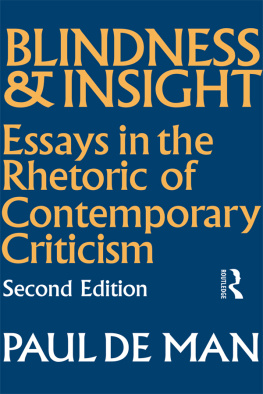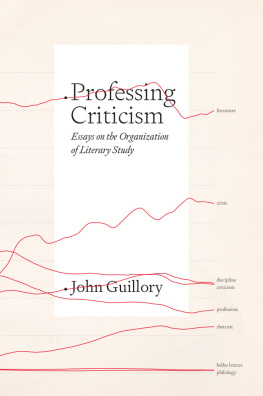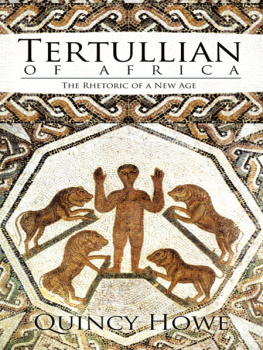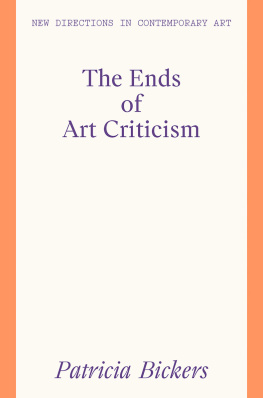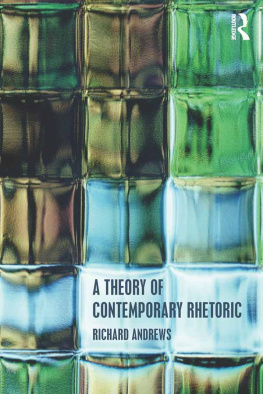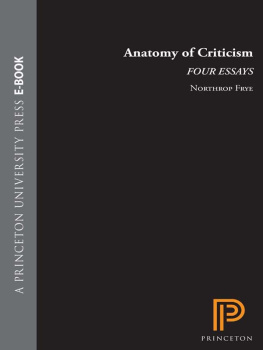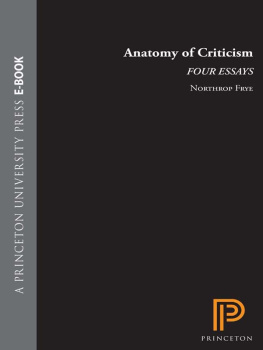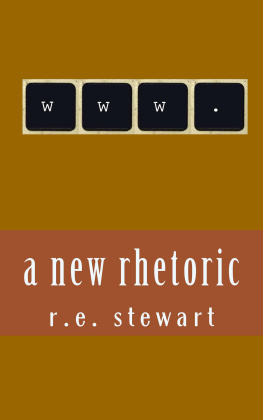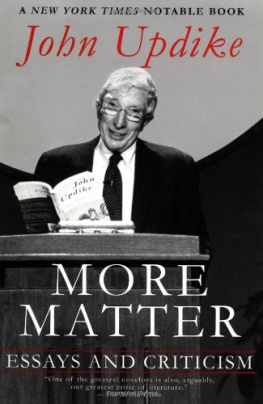De Man - Blindness and insight: essays in the rhetoric of contemporary criticism
Here you can read online De Man - Blindness and insight: essays in the rhetoric of contemporary criticism full text of the book (entire story) in english for free. Download pdf and epub, get meaning, cover and reviews about this ebook. City: London, year: 1989, publisher: Taylor & Francis Ltd;Routledge, genre: Religion. Description of the work, (preface) as well as reviews are available. Best literature library LitArk.com created for fans of good reading and offers a wide selection of genres:
Romance novel
Science fiction
Adventure
Detective
Science
History
Home and family
Prose
Art
Politics
Computer
Non-fiction
Religion
Business
Children
Humor
Choose a favorite category and find really read worthwhile books. Enjoy immersion in the world of imagination, feel the emotions of the characters or learn something new for yourself, make an fascinating discovery.
Blindness and insight: essays in the rhetoric of contemporary criticism: summary, description and annotation
We offer to read an annotation, description, summary or preface (depends on what the author of the book "Blindness and insight: essays in the rhetoric of contemporary criticism" wrote himself). If you haven't found the necessary information about the book — write in the comments, we will try to find it.
De Man: author's other books
Who wrote Blindness and insight: essays in the rhetoric of contemporary criticism? Find out the surname, the name of the author of the book and a list of all author's works by series.
Blindness and insight: essays in the rhetoric of contemporary criticism — read online for free the complete book (whole text) full work
Below is the text of the book, divided by pages. System saving the place of the last page read, allows you to conveniently read the book "Blindness and insight: essays in the rhetoric of contemporary criticism" online for free, without having to search again every time where you left off. Put a bookmark, and you can go to the page where you finished reading at any time.
Font size:
Interval:
Bookmark:
___________________
Blindness and Insight
___________________
________________________________________
________________________________________
Essays in the Rhetoric
________________________________________
of Contemporary Criticism
________________________________________
Second Edition, Revised
Introduction by Wlad Godzich

Second edition first published in the United Kingdom
as a University Paperback in 1983 by
Methuen & Co. Ltd
Second printing, 1986
Reprinted 1989, 1993, 1996 by
Routledge
2 Park Square, Milton Park, Abingdon, Oxon, OX14 4RN
Transferred to Digital Printing 2005
Copyright 1971, 1983 by Paul de Man
Copyright this collection 1983 by the University of Minnesota
Copyright Introduction of Wlad Godzich 1983 by the University of Minnesota
Copyright English translations by Wlad Godzich of Les exgses de Hlderlin
par Martin Heidegger and Impasse de la critique formaliste 1983 by the
University of Minnesota
All rights reserved. No part of this book may be reprinted or reproduced or
utilized in any form or by any electronic, mechanical, or other means, now
known or hereafter invented, including photocopying and recording, or in any
information storage or retrieval system, without permission in writing from the
publishers.
British Library Cataloguing in Publication Data
Man, Paul de
Blindness and insight. -2nd ed.
(University paperbacks; 735)
1. Criticism 2. Rhetoric
I. Title
801.95 PN81
ISBN 0-415-04597-5
The original French versions of Les exgses de Hlderlin par Martin
Heidegger and Impasse de la critique formaliste were published in Critique
(Paris). For permission to publish them in English the publisher is grateful to the
editor of Critique, Jean Piel. Permission to reprint The Rhetoric of
Temporality comes from the Johns Hopkins University Press; the essay
originally appeared in Charles singleton, editor, Interpretation (Baltimore:
Johns Hopkins University Press, 1969). Thanks are due to Thomas R. Hart,
editor of Comparative Literature, for permission to reprint the review of Harold
Bloom's Anxiety of Influence. Thanks are also due to Ralph Cohen, editor of New
Literary History, for permission to reprint Literature and Language: A
Commentary. The first edition of Blindness and Insight was published by
Oxford University Press, New York.
The group of essays brought together in this volume claims in no way to be a contribution to the history of criticism or to offer a survey, however sketchy, of the trends that make up present-day literary criticism in Europe. It is concerned with a different problem. Each essay deals with a question of literary understanding but none approaches this question in a systematic way. They were written for specific occasionsconferences, lectures, homagesand reflect interests that are bound to occur to someone whose teaching has been more or less evenly divided between the United States and Europe. The topics were chosen because of a spontaneous, sometimes personal, interest in a particular critic, without trying to present a comprehensive selection. Many essays are by-products of a more extensive study of romantic and post-romantic literature that does not deal with criticism. The recurrent pattern that emerges was established in retrospect and any resemblance to pre-established theories of literary interpretation is entirely coincidental or, in the terminology of the book, blind. I have made no attempt to bring the terminology of the earlier essays up to date and, except for minor changes, have left them as they were originally written.
I stress the somewhat unsystematic aspect of the volume in order to dispel a false impression that could be created by the emphasis on criticism at the expense of general literature. My interest in criticism is subordinate to my interest in primary literary texts. Just as I disclaim any attempt to contribute to a history of modern criticism, I feel equally remote from a science of criticism that would exist as an autonomous discipline. My tentative generalizations are not aimed toward a theory of criticism but toward literary language in general. The usual distinctions between expository writing on literature and the purely literary language of poetry or fiction have been deliberately blurred. The choice of critics who are also novelists or poets, the use of expository critical texts by such poets as Baudelaire or Yeats, the predilection for authors who combine discursive, essayistic writing with the writing of fiction, all tend in this same direction. I am concerned with the distinctive quality that all these modes of writing, as literary texts, have in common and it is toward the preliminary description of this distinctive quality that the essays are oriented.
Why then complicate matters further by choosing to write on critics when one could so easily find less ambivalent examples of literary texts among poets or novelists? The reason is that prior to theorizing about literary language, one has to become aware of the complexities of reading. And since critics are a particularly self-conscious and specialized kind of reader, these complexities are displayed with particular clarity in their work. They do not occur with the same clarity to a spontaneous, non-critical reader who is bound to forget the mediations separating the text from the particular meaning that now captivates his attention. Neither are the complexities of reading easily apparent in a poem or a novel, where they are so deeply embedded in the language that it takes extensive interpretation to bring them to light. Because critics deal more or less openly with the problem of reading, it is a little easier to read a critical text as texti.e. with an awareness of the reading process involvedthan to read other literary works in this manner. The study of critical texts, however, can never be an end in itself and has value only as a preliminary to the understanding of literature in general. The problems involved in critical reading reflect the distinctive characteristics of literary language.
The picture of reading that emerges from the examination of a few contemporary critics is not a simple one. In all of them a paradoxical discrepancy appears between the general statements they make about the nature of literature (statements on which they base their critical methods) and the actual results of their interpretations. Their findings about the structure of texts contradict the general conception that they use as their model. Not only do they remain unaware of this discrepancy, but they seem to thrive on it and owe their best insights to the assumptions these insights disprove.
I have tried to document this curious pattern in a number of specific instances. By choosing the critics among writers whose literary perceptiveness lies beyond dispute, I suggest that this pattern of discrepancy, far from being the consequence of individual or collective aberrations, is a constitutive characteristic of literary language in general. A somewhat more systematic formulation of the deluding interplay between text and reader is undertaken in the essay entitled The Rhetoric of Blindness.
I have not extended the conclusions of the section on criticism to poetry or fiction but I have indicated, in the two concluding essays, how the insight derived from critical practice influences our conception of literary history. If we no longer take for granted that a literary text can be reduced to a finite meaning or set of meanings, but see the act of reading as an endless process in which truth and falsehood are inextricably intertwined, then the prevailing schemes used in literary history (generally derived from genetic models) are no longer applicable. The question of modernity, for example, can no longer be expressed by the usual metaphors of death and rebirth. These metaphors apply to natural objects and to conscious subjects but not to the elusive enigmas that literary texts turn out to be. The two concluding essays make the transition to the exegetic and historical questions raised by our own, post-romantic modernity.
Next pageFont size:
Interval:
Bookmark:
Similar books «Blindness and insight: essays in the rhetoric of contemporary criticism»
Look at similar books to Blindness and insight: essays in the rhetoric of contemporary criticism. We have selected literature similar in name and meaning in the hope of providing readers with more options to find new, interesting, not yet read works.
Discussion, reviews of the book Blindness and insight: essays in the rhetoric of contemporary criticism and just readers' own opinions. Leave your comments, write what you think about the work, its meaning or the main characters. Specify what exactly you liked and what you didn't like, and why you think so.

